
Welcome adventurer to part three of the Running Adventure Modules blog series. Over the course of five articles, we’ll cover all the tips and tricks a busy GM needs to run pre-written adventure modules with little to no prep time!
In this article, we’re going to talk about how to prep the main course of any module: the encounters.
Once you’ve got a handle on the narrative of an adventure module, there are several things you can do to set yourself up for success when you run the nitty-gritty mechanical bits of modules that sit at the heart of the game. I provided a rough definition for what an encounter is in the first article, but this time we’re getting a little more specific. There are multiple types of encounters in any Fifth Edition module, and each requires a different preparation approach.
Note: Running exciting and challenging encounters on the fly can be difficult, but many brilliant people have published resources and tools to help make the experience easier. In addition to reading about encounters in the core rulebooks, if you are still feeling stumped after reading this article, I encourage you to do some poking around online to find more articles on the subject.
Combat Encounters
Combat encounters typically involve fighting a creature, but they don’t always have to. Any situation where the stakes are high, and you need initiative to decide turn order can be regarded as a combat encounter.
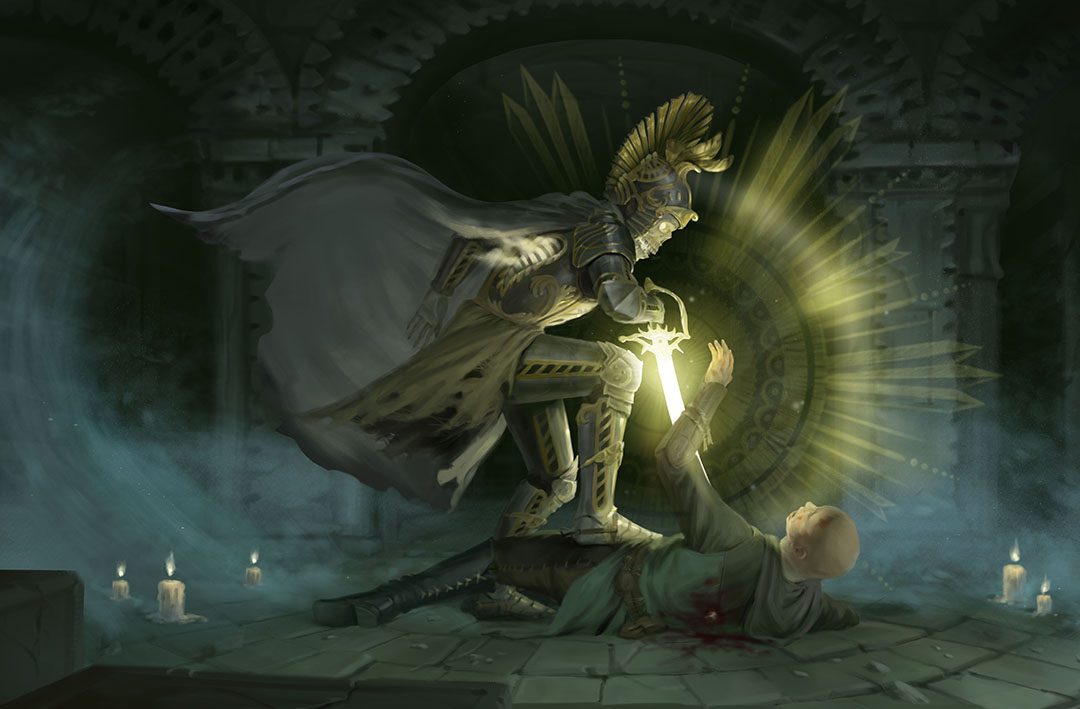
Artist: Janna Sophia
Combat Encounter Prep
Combat encounters are the most common type of encounter in Fifth Edition, and they are also the encounters that benefit most from prep work beforehand. Depending on how you play your games, prepping combats written in a module can take a lot or a little work.
If you like to play in person with miniatures, you may like to spend time picking appropriate ones, prepping a map, and maybe even finding terrain to match the encounters written in the module. If you play online in a virtual tabletop, you’ll spend similar time finding tokens, battle map graphics, and likely troubleshooting platform issues to get everything working just so.
If you are the kind of GM who typically runs combat encounters with all these trappings, there are a few things you need to do to make your life easier when it comes to prep.
Purchase Modules with Virtual Assets
As more and more people are playing roleplaying games online, the availability of virtual assets is only getting better. To follow the trend, a lot of module designers are creating such assets to support their specific adventures. There are a variety of modules out there that can be purchased with perfect map files, monster tokens for creatures that appear in the adventure, and even flashy extras like soundscape audio tracks! While these hybrid modules cost a little more money than a standard PDF download, they are well worth it for the GM on a time crunch who still wants the full battle map experience.
Invest in Physical Organizational Tools
If you are a busy GM who has to prep modules quickly, but you still want to use physical assets like minis and maps, you absolutely must invest in organizational tools.
If you are going to be able to find the right monster miniature 15 minutes before the session, having a robust storage system is a must. Invest in multiple containers to organize minis by type and have a go-to collection of all-purpose terrain. Keep all the tools you need like erasable markers, battle mats and area-of-effect templates in a permanent home so that you can always find them quickly.
If you are using digital tokens and battle maps, the same principle applies in carefully sorting your digital folders to quickly find what you need.
Learn to Love Theatre of the Mind
If you are a GM with little free time at your disposal, I encourage you to learn to love theatre of the mind style combat. Realistically, hours spent crafting suitable battle maps add up quickly and can be a huge source of frustration to the low prepped GM. So learn to do games without when the occasion renders it necessary. Your players would much rather skip playing on a grid then skip playing a session because their stressed GM just couldn’t find the time to get through yet another prep task.
Don’t Overprepare
Unless you are fighting the module’s big bad or super important enemy, any combat you run will rarely last more than three rounds. 5e makes player characters overpowered fiends, so keep this in mind when you prep.
Unless you are setting up a special or specific encounter, you should not spend time creating elaborate map set-ups, meticulously reviewing monster stat blocks, or any other prep work. This is especially because the players may find a way to avoid or circumvent the combat encounter entirely! Keep it fast and loose, and prep the bare minimum you need to smash through the smaller fights.
Social Encounters
Social encounters involve interacting with creatures in ways other than direct combat, usually to accomplish a specific objective. Beseeching an official for aid, bargaining for a good price, and interviewing witnesses are all examples of social encounters.
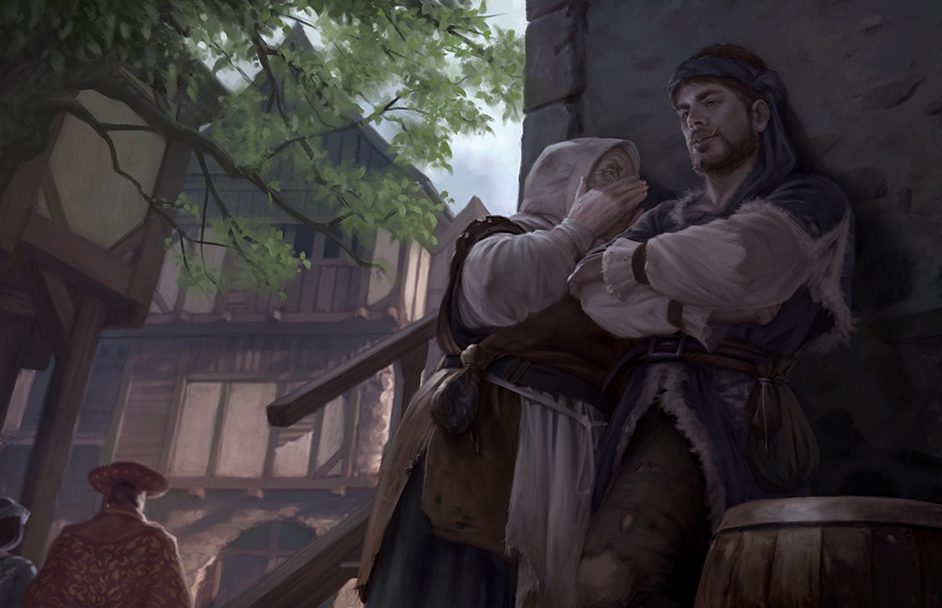
Artist: Andreia Ugrai
Social Encounter Prep
Social encounters are the trickiest encounter type to run. There isn’t a lot of mechanical support provided in Fifth Edition to run social encounters, so a lot of the work falls on a GM’s own improv skills.
But it’s not all bad news, with a little prep work you can arm yourself with resources to deal with these fiddly scenes ahead of time. With that said, here are some quick tips to keep in mind when managing and running social encounters.
Know Your Motivation
Before running any kind of social encounter, it is critical to identify what the goals are for each party involved. Are the player characters trying to convince the NPC to help them? Is the NPC trying to lure the player characters into a false sense of security? Making sure you thoroughly understand the motivations and goals of each party, ensures that you will always have a baseline to keep you grounded as you run a social encounter. Taking the time to read these encounters, identify the motivations, and write them down in your GM notes is critical to prep success.
Think About How NPCs Look and Speak
When a module introduces an NPC that is meant to interact with your players, save yourself some stress by jotting down notes about what they look and sound like. Note whether you want an NPC to have an accent, to speak at a particular pace or volume, or use specific catch phrases. These can be a continuity lifesaver.
Don’t Invest Too Much Time Ahead of Time
Don’t get too attached to an NPC until you know how your players feel about them. You should discard NPCs to whom your players don’t strongly react to, regardless of how you feel about them.
Exploration Encounters
Exploration encounters deal with overcoming obstacles that are not direct interactions with creatures. Finding shelter in a blizzard, searching for a book in an ancient library, and following the trail of a runaway pet are all examples of exploration encounters.
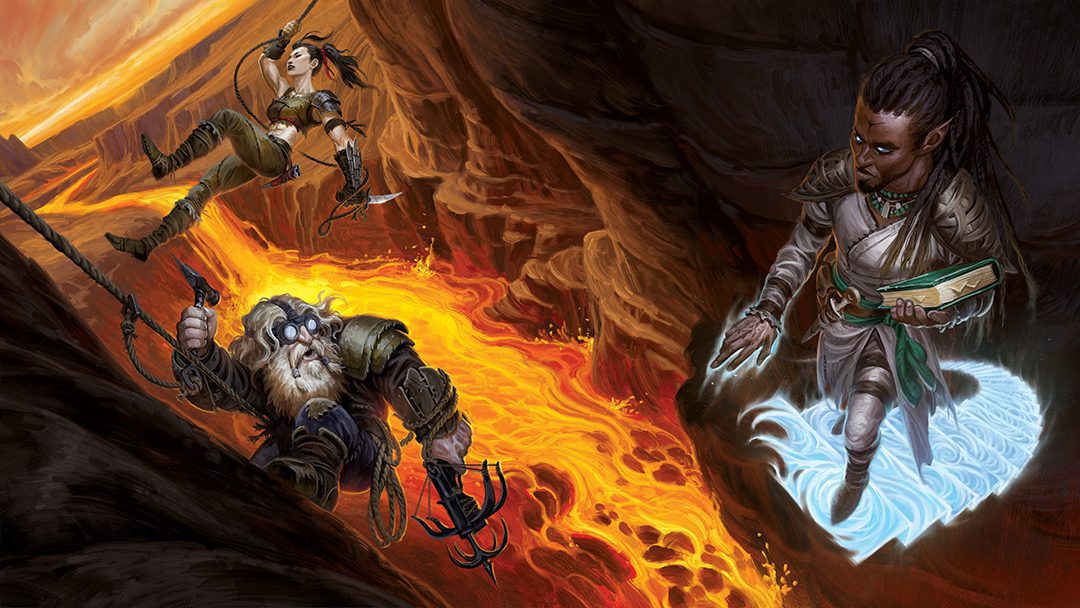
Artist: Lucas Torquato
Exploration Encounter Prep
Exploration encounters are kind of a catch all for all encounters that aren’t obviously social, or combat based. As such, they can range widely in type and preparation strategies. While we can’t prepare for every eventuality, here are a few suggestions that should set you up for most exploration encounters commonly found in modules.
Collect Any Reference Rules
Before you run an exploration encounter make sure to scan for any special rules you will need and add them to your session notes! Exploration encounters often make use of obscure rules hidden in the rarely used sections of the core rules, so find them ahead of time and copy them or note the book and page number they are on. Nothing is more stressful than having to figure out where the heck suffocation rules are while drowning the party with a water trap.
Remember the Juicy Details
Part of the fun of exploration encounters is introducing fantastic new places and things to your players. They often present an exciting opportunity to describe fantastical scenes or create action-packed scenarios that really immerse the characters in the world. To help create satisfying scenes on the fly, it helps to pull out some important details ahead of time. Scan the module text for the juicy keywords and descriptions for each location or scene. And if they aren’t in the text, make sure to jot down a few! Describing how a place looks, smells, sounds, and feels is a sure-fire way to sell the newness of an environment.
And that covers what you need to know! So go on out there and get prepping.

![Grim Hollow: The Player's Guide [PDF]](https://b2358178.smushcdn.com/2358178/wp-content/uploads/2021/02/Grim-Hollow-players-Guide-PDF-600x600.jpg?lossy=1&strip=1&webp=1)
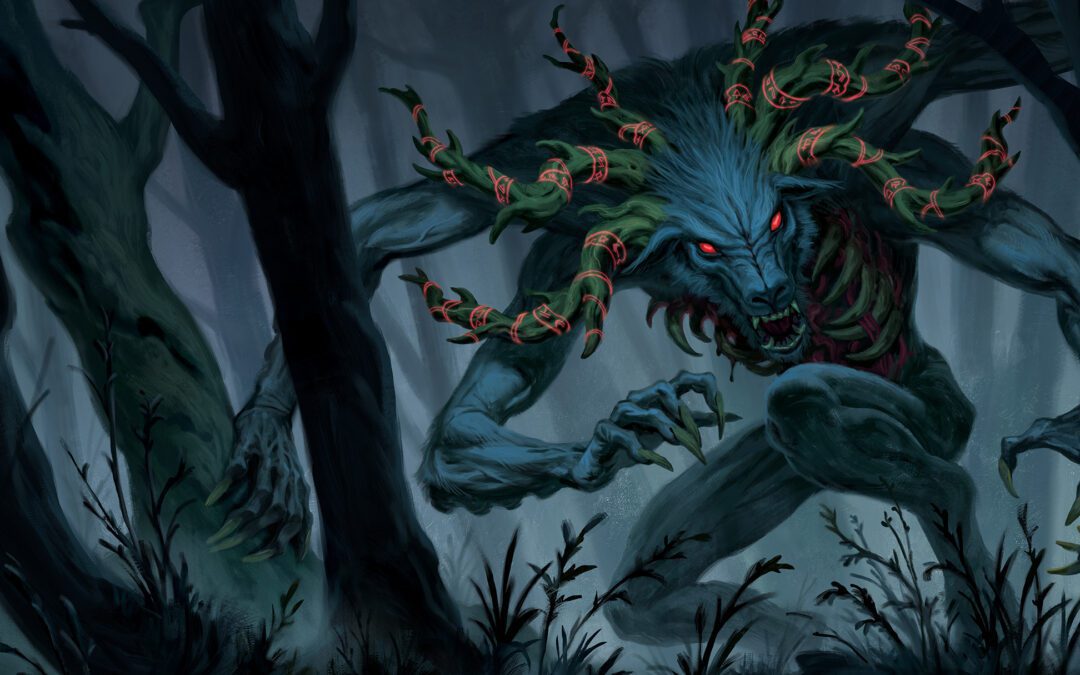
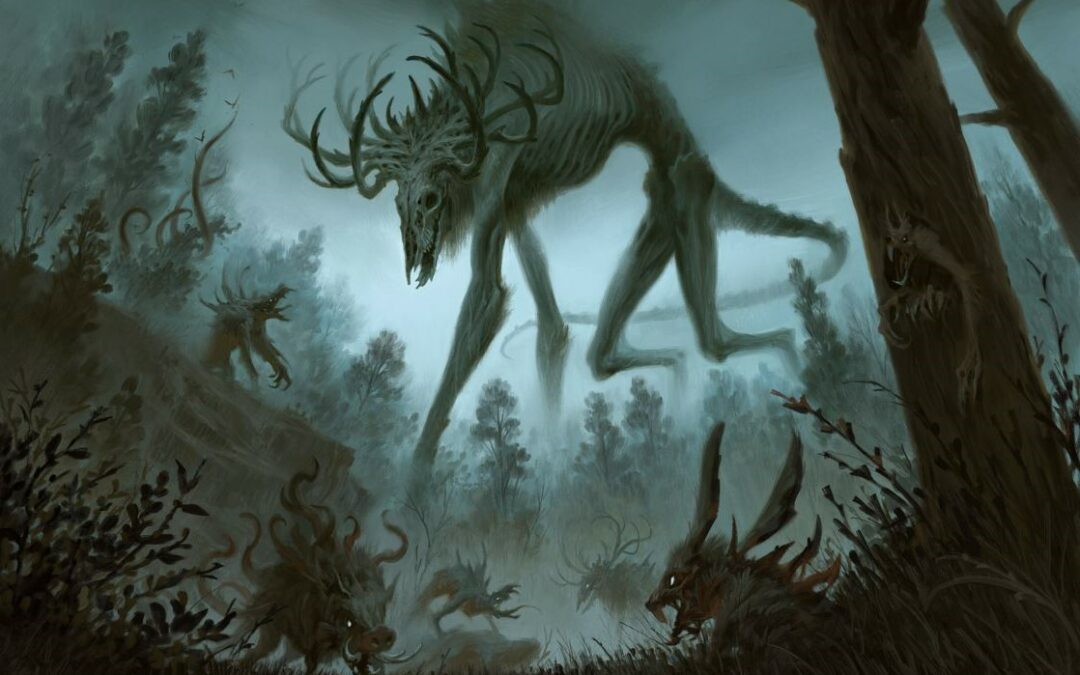
0 Comments